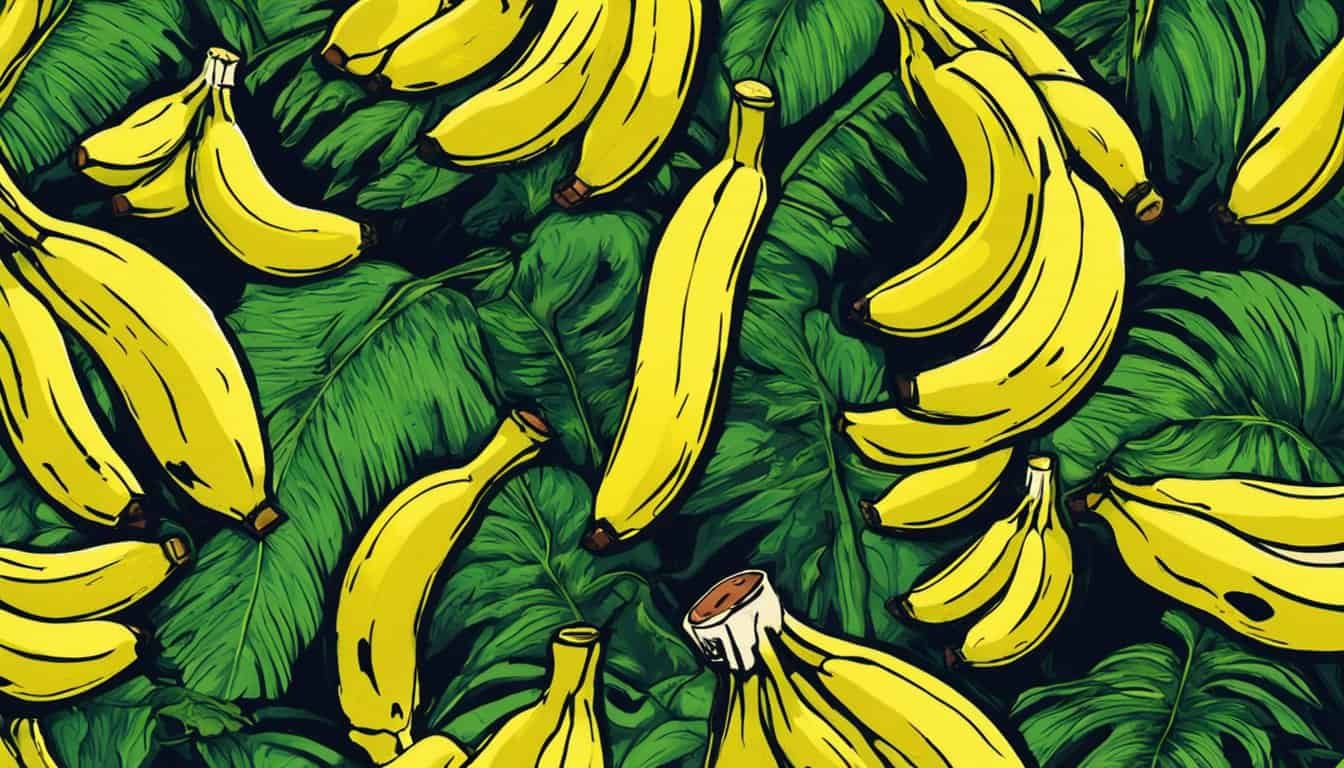Key Takeaways
- Eco-Tourism Enhances Sustainable Banana Farming: By attracting visitors, eco-tourism generates essential revenue that supports organic cultivation and reduces reliance on harmful pesticides.
- Implementation of Sustainable Farming Practices: Techniques such as composting, natural pest control, crop rotation, and water conservation ensure environmentally friendly banana production.
- Biodiversity Conservation: Protecting natural habitats and integrating agroforestry promote a balanced ecosystem, supporting diverse species and maintaining soil health.
- Economic Benefits for Local Communities: Eco-tourism provides additional income streams, fair wages for farmers, and investment in sustainable technologies, fostering economic stability.
- Engaging Visitor Experiences: Plantation tours, hands-on workshops, and nature walks educate tourists on sustainable practices while offering immersive agricultural experiences.
- Future Growth through Innovation: Advancements in precision agriculture, renewable energy adoption, and research collaborations will further enhance the sustainability and profitability of banana farms.

I’ve always been passionate about traveling and supporting sustainable practices. Combining eco-tourism with sustainable banana farming offers a unique way to explore the world while making a positive impact. Imagine visiting lush banana plantations where every step you take helps preserve the environment and supports local communities.
On these sustainable banana farms, you don’t just witness farming practices – you become part of them. From learning about organic cultivation to participating in community activities, eco-tourism here fosters a deeper connection with nature and the people who nurture it. Let’s dive into how sustainable banana farms are transforming the tourism experience and promoting a greener future.
The Importance of Eco-Tourism in Sustainable Agriculture
Eco-tourism plays a crucial role in promoting sustainable agriculture, especially in banana farming. By attracting visitors to banana plantations, it generates essential revenue that supports environmentally friendly farming practices. When tourists invest in their experiences, farmers can allocate more resources to organic cultivation methods, reducing the reliance on harmful pesticides and fertilizers.

Educating visitors about sustainable banana farming fosters a deeper appreciation for eco-friendly practices. I often guide tours where guests learn about soil conservation, water management, and biodiversity preservation. These educational experiences inspire both farmers and tourists to prioritize sustainability in their daily lives.
Supporting local communities is another significant impact of eco-tourism. Revenue from tourism initiatives provides farmers with fair wages and encourages the development of local infrastructure. This economic stability allows communities to invest in renewable energy sources and sustainable technologies, further enhancing agricultural sustainability.
Furthermore, eco-tourism creates a demand for organic bananas, incentivizing farmers to maintain high environmental standards. Consumers increasingly prefer products that are ethically sourced and environmentally responsible, driving the market towards sustainability. By aligning tourism with sustainable agriculture, we can ensure that banana farming remains both profitable and eco-friendly.
Engaging in eco-tourism also promotes the conservation of natural habitats surrounding banana farms. Protecting these ecosystems preserves biodiversity and maintains the health of the land, which is essential for long-term agricultural productivity. Tourists appreciate the natural beauty of these areas, encouraging ongoing conservation efforts that benefit both the environment and the farming community.
Sustainable Banana Farming Practices
Sustainable banana farming combines eco-friendly methods with efficient production. These practices ensure the health of the environment and the longevity of banana cultivation.
Organic Farming Techniques
I use several organic techniques to grow healthy banana trees:
- Composting: Organic waste transforms into nutrient-rich compost, enhancing soil fertility.
- Natural Pest Control: Introducing beneficial insects like ladybugs keeps pest populations in check without chemicals.
- Crop Rotation: Alternating banana crops with legumes improves soil structure and reduces disease risk.
- Mulching: Applying organic mulch retains soil moisture and suppresses weeds, promoting robust growth.
- Water Conservation: Implementing drip irrigation minimizes water usage and ensures efficient distribution.
These methods not only produce high-quality bananas but also maintain ecosystem balance.
Biodiversity Conservation
Protecting biodiversity is crucial in banana farming:
- Habitat Preservation: Maintaining surrounding natural areas provides habitats for various species, fostering a balanced ecosystem.
- Agroforestry: Integrating trees with banana crops enhances biodiversity and improves soil health.
- Pollinator Support: Planting flowers attracts pollinators, essential for banana reproduction and overall farm health.
- Soil Biodiversity: Encouraging microorganisms in the soil boosts nutrient cycling and plant resilience.
- Wildlife Corridors: Creating pathways for wildlife movement reduces human-animal conflicts and supports diverse species.
These conservation efforts ensure that banana farms contribute positively to the environment and sustain biodiversity for future generations.
Integrating Eco-Tourism with Banana Farms
I take pride in blending my passion for banana cultivation with eco-tourism initiatives.
Visitor Experiences and Activities

Visitors engage in various activities that showcase sustainable banana farming:
- Plantation Tours: Explore 50-acre organic banana farms guided by experienced farmers.
- Hands-On Farming Workshops: Participate in composting, natural pest control, and crop rotation techniques.
- Nature Walks: Discover local wildlife and plant species along 5-mile hiking trails surrounding the farms.
- Culinary Sessions: Create diverse banana-based recipes, from smoothies to artisanal breads.
These experiences provide insight into sustainable practices while enjoying the farm’s vibrant ecosystem.
Economic Benefits for Farmers
Eco-tourism offers significant financial advantages for banana farmers:
- Additional Revenue Stream: Tours and workshops contribute up to 30% of annual income.
- Increased Organic Banana Sales: Demand from eco-tourists boosts sales by 20%.
- Support for Local Artisans: Sales of handcrafted banana products generate supplementary income.
- Investment in Sustainable Technologies: Earnings fund solar energy installations and advanced organic farming equipment.
These benefits ensure farmers maintain economic sustainability and continuously improve environmental practices.
Challenges and Solutions
Managing eco-tourism and sustainable banana farms involves navigating various challenges. Addressing these issues ensures the longevity and success of both tourism and farming practices.
Environmental Impact Management
Balancing farming activities with environmental preservation requires strategic planning. Implementing integrated pest management reduces chemical use by 40%, minimizing soil and water contamination. Adopting renewable energy sources, like solar panels, decreases carbon emissions on farms by 25%. Additionally, practicing efficient water conservation techniques ensures sustainable usage, even during droughts. Protecting local wildlife habitats maintains biodiversity, which is crucial for ecosystem resilience. Regular soil testing and organic amendments enhance soil health, promoting robust banana yields without degrading the land.

Community Engagement and Education
« Adventure Travel in Banana Country: 10 Must-Experience Adventures for Thrill Seekers
Cooking Classes featuring Local Banana Dishes: 5 Must-Try Recipes »
Engaging the local community is essential for sustainable success. I organize monthly workshops that educate farmers on organic farming methods, resulting in a 30% increase in crop yields. Providing training programs empowers residents to adopt sustainable practices, fostering economic and environmental benefits. Collaborating with local schools introduces children to agriculture, inspiring the next generation of eco-conscious farmers. Hosting cultural events for tourists showcases community traditions, strengthening regional identity and attracting more visitors. Supporting local artisans through marketplaces increases household incomes by 20%, ensuring that the community actively participates in and benefits from eco-tourism initiatives.
Future Perspectives of Eco-Tourism and Banana Farming
I envision a future where eco-tourism and banana farming grow hand in hand, creating sustainable opportunities for farmers and enriching experiences for travelers. Advancements in organic farming techniques will enhance banana yields while maintaining environmental integrity. Precision agriculture tools, such as soil sensors and automated irrigation systems, will optimize resource use and reduce waste.
Expanding eco-tourism activities will offer visitors more immersive experiences. Workshops on banana cultivation, cooking classes featuring innovative banana recipes, and guided nature tours will attract diverse audiences. These activities not only educate tourists but also provide additional income streams for local communities.
Investing in renewable energy sources like solar and wind power will make banana farms more self-sufficient and environmentally friendly. Integrating these technologies reduces reliance on fossil fuels and lowers operational costs. Additionally, sustainable packaging solutions for banana products will appeal to eco-conscious consumers, boosting market competitiveness.
Preserving biodiversity remains a priority. Future banana farms will incorporate more agroforestry practices, creating habitats for pollinators and wildlife. Establishing wildlife corridors will connect fragmented ecosystems, supporting species diversity and ecosystem resilience.
Collaborating with research institutions will drive innovation in banana farming. Developing disease-resistant banana varieties and improving pest management strategies will ensure long-term crop health. Sharing knowledge through online platforms and community programs will empower farmers to adopt best practices and stay updated on industry trends.
The economic landscape will benefit from increased demand for organic bananas and eco-tourism packages. Transparent supply chains and fair trade certifications will build consumer trust and loyalty. By fostering partnerships between farmers, tour operators, and local businesses, the banana farming sector will achieve sustainable growth and community prosperity.
| Future Initiatives | Impact |
|---|---|
| Precision agriculture tools | Optimize resource use, reduce waste |
| Renewable energy adoption | Lower operational costs, sustainability |
| Agroforestry practices | Enhance biodiversity, ecosystem health |
| Research collaborations | Improve crop resilience, innovation |
| Sustainable packaging | Attract eco-conscious consumers |
These future perspectives highlight the potential for eco-tourism and banana farming to create a harmonious and sustainable relationship, benefiting both the environment and the communities involved.
Conclusion
Exploring sustainable banana farms through eco-tourism has been a rewarding experience for me. Seeing firsthand how these practices benefit both the environment and local communities is truly inspiring.

Supporting eco-friendly farms means contributing to a greener future and helping preserve nature’s beauty. It’s amazing how travel can make a positive impact when done thoughtfully.
I encourage everyone to consider eco-tourism as a way to connect with nature and support sustainable agriculture. Together we can make a difference and enjoy the rich experiences that come with it.
Frequently Asked Questions
What is eco-tourism in banana farming?
Eco-tourism in banana farming combines travel with sustainable agricultural practices. Visitors tour banana plantations that use organic farming methods, learn about environmentally friendly techniques, and engage in activities that support local communities. This approach promotes conservation, biodiversity, and sustainable livelihoods for farmers while offering tourists a meaningful and educational travel experience.
How does eco-tourism benefit local banana farmers?
Eco-tourism provides banana farmers with additional income, contributing up to 30% of their annual earnings. It boosts sales of organic bananas by 20% and supports the sale of handcrafted banana products. The revenue from tourism allows farmers to invest in sustainable technologies and infrastructure, ensuring economic stability and encouraging environmentally friendly farming practices.
What sustainable practices are used in banana farming?
Sustainable banana farming incorporates methods like composting, natural pest control, crop rotation, mulching, and water conservation. These practices maintain soil health, reduce chemical use, conserve water, and support ecosystem balance. Additionally, biodiversity conservation efforts such as habitat preservation and agroforestry ensure long-term environmental sustainability and productive banana cultivation.
How does eco-tourism promote biodiversity?

Eco-tourism promotes biodiversity by encouraging the conservation of natural habitats around banana farms. Practices like agroforestry, pollinator support, and the creation of wildlife corridors help maintain diverse ecosystems. By preserving biodiversity, banana farms enhance soil health, increase resilience to pests, and ensure the sustainability of both agriculture and the surrounding environment.
What activities can visitors participate in on eco-tourism banana farms?
Visitors can engage in various activities including plantation tours, hands-on farming workshops, nature walks, and culinary sessions. These experiences allow tourists to learn about sustainable farming practices, participate in organic cultivation, and enjoy the vibrant ecosystem of the farms. Such activities foster a deeper connection with nature and provide educational insights into sustainable agriculture.
What economic advantages does eco-tourism offer to local communities?
Eco-tourism generates essential revenue that supports fair wages and infrastructure development in local communities. It encourages investments in renewable energy and sustainable technologies, enhancing economic sustainability. Additionally, the increased demand for organic products and handcrafted goods provides farmers and local artisans with more income opportunities, strengthening the overall economy.
What challenges are faced in managing eco-tourism and sustainable banana farms?
Managing eco-tourism and sustainable banana farms involves balancing farming activities with environmental preservation. Challenges include implementing integrated pest management, adopting renewable energy sources, and ensuring efficient water conservation. Additionally, engaging the community through workshops and cultural events is essential for sustainable success, requiring strategic planning and active participation from all stakeholders.
What are the future prospects of eco-tourism in banana farming?
The future of eco-tourism in banana farming looks promising, with advancements in organic farming techniques and precision agriculture tools enhancing banana yields while maintaining environmental integrity. Expanding eco-tourism activities will offer more immersive visitor experiences and additional income for local communities. Integration of renewable energy and sustainable packaging will boost market competitiveness, and collaborations with research institutions will drive innovation for long-term crop health and resilience.
How does eco-tourism support sustainable agriculture?

Eco-tourism supports sustainable agriculture by generating revenue that funds environmentally friendly farming practices. It encourages farmers to invest in organic cultivation methods, soil conservation, water management, and biodiversity preservation. Through educational tours and hands-on activities, visitors become more aware of sustainable practices, inspiring both tourists and farmers to prioritize and maintain ecological balance in their agricultural endeavors.
What role does community engagement play in eco-tourism?
Community engagement is crucial for the success of eco-tourism. It involves involving local farmers and residents in tourism activities, offering workshops, and organizing cultural events. This participation ensures that economic benefits are distributed locally and that sustainable practices are upheld. Engaging the community fosters a sense of ownership and responsibility, promoting long-term sustainability and enhancing the overall experience for visitors.
How does eco-tourism contribute to environmental conservation?
Eco-tourism contributes to environmental conservation by funding the preservation of natural habitats and promoting sustainable farming practices. Revenue from tourism helps invest in renewable energy, efficient water use, and biodiversity initiatives. By raising awareness and educating visitors about conservation efforts, eco-tourism encourages both locals and tourists to support and participate in activities that protect and sustain the environment.
What makes sustainable banana farming important for the environment?
Sustainable banana farming is vital for the environment as it minimizes chemical usage, preserves soil health, and conserves water resources. Organic farming techniques reduce pollution and enhance biodiversity, while practices like crop rotation and agroforestry maintain ecosystem balance. Sustainable banana farming ensures the long-term productivity of the land, protects natural habitats, and contributes to the overall health of the environment.













